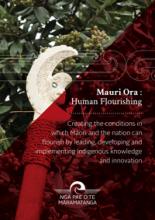What is the cost of Māori health inequities in Aotearoa?
In New Zealand, the most compelling and consistent health inequalities occur between Māori and non-Māori. Although the cost of reducing inequalities is perceived as high, a recent study for Māori children showed that the economic cost of “doing nothing” is significant for New Zealand society highlighting the fact that such inequalities are preventable, unnecessary and a breach of human rights.
Previous studies have looked at this issue in regards the health and wellbeing of rangatahi / tamariki, and so this project now aims to consider the economic costs of health inequities between Māori and non-Māori adults (aged 18 and over).
The overall aim of the research is to understand the meanings of Māori adult health inequities through exploring Māori realities of illness. The research consists of two studies conducted in parallel under the mana of a Kaupapa Māori paradigm.
- Identify inequities in hospitalisations, deaths, illnesses and injuries between Māori and non-Māori adults and estimate the economic costs associated with these inequities for the health sector and for whānau.
- Utilise qualitative methods to begin to understand Māori lived realities of managing the economic, social, spiritual and organisational aspects of illness.
This project has the potential to bring issues of Māori health inequities to the consciousness of a greater number of public health professionals, community advocates and health service providers. It will also make a significant contribution to Māori researcher expertise in health economics and provide an Indigenous viewpoint on Western methodological approaches in that field.
Objectives of the Research:
- Analyse the economic costs of health inequities between Māori and non-Māori adults (aged 18 and over) in New Zealand.
- Provide useful and novel data on the ways in which health inequities are reported and addressed in New Zealand, thereby contributing to the limited evidence base in this area for Māori.
- Inform the development of targeted policies and strategies at both political and institutional levels, with the ultimate goal of developing a health system that does not tolerate health inequities between Māori and non-Māori but instead facilitates Māori health gain.
- Assist in the development of Māori health research workforce with a focus on capacity and capability in “health economics”.
